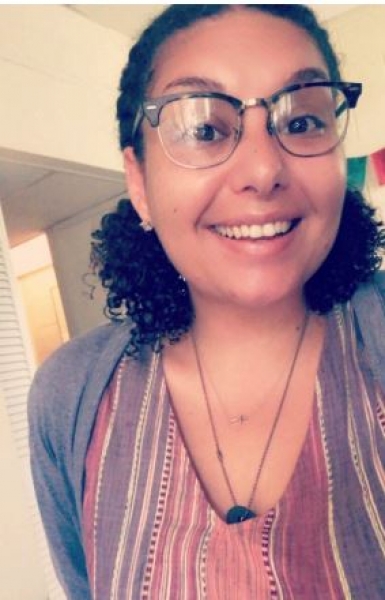SIM News

A Discipleship of Liminality, Megan Allen, Simminarian
02/24/21
For many of us, I imagine living in quarantine feels like a pendulum swinging between the past and the future – between remembrance and hopefulness. But what do we do with the vast space between what we cling to and what we desire? This image of a swinging pendulum has stuck with me during our time of quarantine, and I have come to understand this space as an opportunity to move within the liminal life we are called to as followers of Jesus.
Liminality is the space between the known and unknown, an awareness of the porous nature of knowability. People also use the word wilderness to describe similar seasons of great discernment and ambiguity. However, the wilderness metaphor offers a beginning and end. Scripture tells us that Jesus and others both entered and exited the wilderness, but Jesus never abandoned his liminality. Mortal and immortal, king and servant, human and divine – Jesus embodies liminality. Living a liminal life means being fully present to the ever-changing, yet always grounded now.
Quarantine liminality challenges me to engage a deeper experience of discipleship, one rooted in improvisation, rather than predictability. Both the art of improvisation and our theology teaches that each moment holds an opportunity for transformation. This requires letting go of all that we know and expect so that we can experience what is possible. In our Baptism, we are engrafted into the liminal body of Christ, where grace and love manifest the limitless possibilities of God. In this time of unpredictability, we are being invited daily to improvise, to participate in the wonders God has for us – wonders that persist throughout wilderness wanderings!
Eventually, we will exit the wilderness of COVID. Do we hope merely to return to our past lives transplanted into the future – swinging past what this moment has to teach us? I hope not! This wildly unexpected and troublesome season nurtures the gift of liminal living. We can learn that both clinging to the past and focusing on the future prevent us from experiencing God’s restorative presence in the now. In this in-between space, we can experience God’s limitless creative power working within what is to bring about what can be. Our call to follow Jesus includes our call to live liminally, not only in the wilderness seasons but throughout our lives of discipleship.
